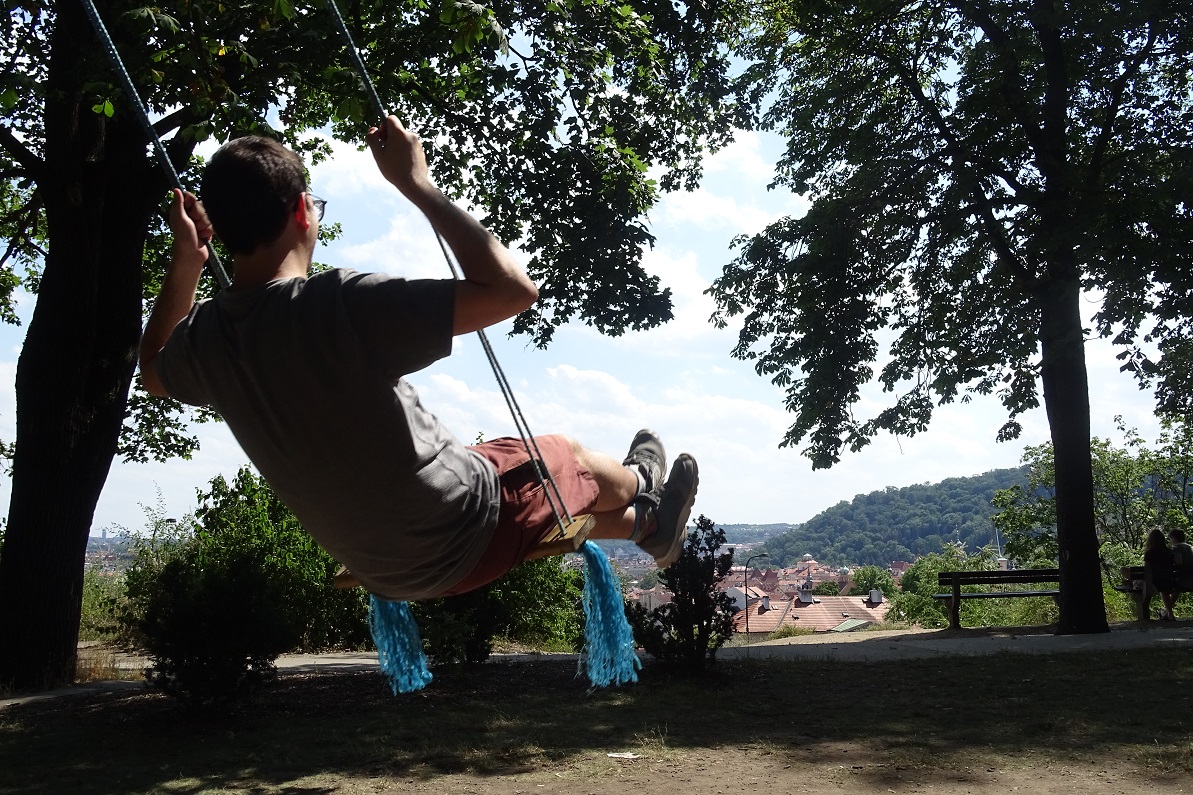
5 Tips You Didn’t Know You Needed Before Moving to the Czech Republic
Moving to a foreign country is always an adventure. Although you do your research, you can easily miss something without realising that could make your new life needlessly harder along the way. Here’s a small list of things you need to know before moving to the Czech Republic. Photo: Jobspin / Z. Moreau.
1 Make sure you have health insurance
In the Czech Republic having health insurance is mandatory by law, precisely “Act No. 326/1999 Coll. on the Residence of Foreign Nationals in the Czech Republic.” If you have an accident and you are not insured, not only are you breaking your body, you are also breaking the law.
If you are from an EU country or working for a Czech employer, you are lucky; you meet the requirements to access the Czech Public Health Insurance System and you are covered for emergency treatments. But that’s just the first step: to get yourself a doctor, you have to register with the public health insurance system. You can choose from seven public health insurance companies; the largest one is Všeobecná zdravotní pojišťovna (VZP, General Healthcare Insurance), which covers almost 60% of the Czech population. Many employers will help you with the process, and you can find a list of all the Czech public health insurance companies on the Ministry of Health website.
If you are from a non-EU country, EEA state or Switzerland, you will have to purchase commercial insurance by yourself. Since it’s mandatory by law to have it, you have to get yours before you arrive in the Czech Republic; it must cover the timeframe before you land in the country and the start of your job. Be careful when choosing, because private insurance is not just useful if you get hurt; having a certain type of health insurance, known as “Comprehensive or (Complex) Health Insurance”, is a requirement for obtaining a Visa or an Employee Card to work in the Czech Republic. You can find a more detailed description of the requirements on the Ministry of the Interior webpage dedicated to the topic, and on the Ministry of Health webpage.
2 Register with the Foreign Police
If you are an EU/EEA citizen you have 30 days to register at a Foreign Police station after entering the country. So you can take your time, but not too much.
If you are from anywhere else, things are more serious and timeframes are tighter. You are required to register at a Foreign Police station within three working days of entering the country. And get familiar with the place – you will end up queueing there for many hours every time you extend your residence permit or change your address. While you’re at it, maybe invest in a good thermos and a blanket; people start queueing incredibly early in the morning, and sometimes during the night, so that they can go to work afterwards. If you’re not an early bird, you will have a lot of people in front of you and you might have to wait in the cold for a while.
3 Pay your garbage tax (really, you have to do it)
Did you move to the Czech Republic recently? Regardless of whether you’re a student, a freelancer or just a poor boy from a poor family, we all share the same duty: as soon as we start our new lives in the Czech Republic and register at the Foreign Police office, we have to pay the garbage collection fee.
The terms of payment change from city to city; in Prague it’s your landlord’s duty and you pay it as part of your rent. In Brno, it’s down to you, and if you are lucky you might even receive a friendly letter from the City municipality reminding you to pay your garbage fee. The due date is May 31st, but if you arrive in the city after that date, you have 15 days to pay your fee. What happens if you don’t do it or you “forget” about it? You will have to pay more (the fee, plus a penalty for the delay).
Both Foreigners and Brno Expat Centre have detailed articles on the topic, check them out for more info.
4 Ask the experts
As you may have noticed, paperwork can be hard, especially because laws change constantly and a minor update to a code could change which documentation you need. You might spend a lot of time (and money) preparing everything you need for your visit to the embassy, just to find out that you don’t even need a Visa because of some recent overhaul of the migration law, or you need a different Visa with different requirements and different documents. Money, time, and mental energy wasted like tears in the rain.
That’s why we suggest contacting (both before your departure and after your arrival) an expat-friendly relocation company: your job is to be responsible and do everything correctly and according to the law, and their job is to tell you exactly how to do so in the most efficient way.
Foreigners is a real estate agency active in all the most important cities in the Czech Republic. They cover every aspect of your relocation, from helping you with your Visa process and your healthcare to buying a house once you’re here. They often organize events, special MeetUps and workshops.
Move to Prague is specialized in relocation services for those who want to live in the Czech capital. They are friendly, competent, and they can help you find cheap accommodation and get the right documents. Their employees have moved either to Prague or other world cities on their own so they know what problems you’re facing: no question or requirement is too silly for them.
Brno Expat Centre is a free public service, ready to help foreign families settle in the Brno area. They “connect expats with local service providers who are able to communicate in foreign languages and understand the needs of foreign clients”. Whatever you need, from accommodation to finding an English speaking vet, they can help you.
5 Check what banking option is best for you
When moving to a foreign country, opening a new bank account is an important necessity; if you keep using your home country bank account, you will have to pay a fee every time you withdraw cash, and often pay a small fee for every transaction you do abroad.
There are many international banks based in the Czech Republic, such as ČSOB, Unicredit, Raiffeisenbank, Citibank, KB Komerční Banka and others. There are also so called low-cost banks that offer basic services for very small fees, such as Fio Bank and Air Bank. Banks offer different services according to different needs: do some research on what you need from your bank account (no withdrawal fees, lower fees for international money transfers), and see what’s best for you.
Bonus tip: get wild in the supermarket
You recently moved to a new country, hundreds or thousands of kilometers away from home. You can follow two paths ahead of you: either barricade yourself in a fortress of old habits that make your current lifestyle look just like your old one, or loosen up a bit and try new and somewhat scary things. I’m Italian, and many Italian expats I know are extremely picky eaters. You can recognize them easily – they are the ones who refuse to eat anything not Italian, and complain loudly that the pizza they just had in Prague was worse than the one they usually have at home. And they are missing out, because Czech supermarket and restaurants have a lot to offer to curious adventurers who dare to step out of their comfort zones.
Czech people love their spices (caraway and mild paprika are the most used) and herbs, and incredible lemonades with mint and lemon balm can be found in any restaurant. I recently discovered libeček and parsley roots (great for soups), smoked mackerel and cod liver: ingredients that many of you probably know already but that I never came across before and that I will miss when I go back to my hometown. Next time you are shopping or walking through the city, remember to take a quick look at someone else’s shopping cart and look for inspiration.
Prepared by Manuele Siciliano.
The tips for people who would like to find a job in Prague or Brno were prepared by the Jobspin team: a mix of interns, graduates, and university drop outs. Like what you’re reading? Subscribe to monthly news highlights in the Czech job market and economy – Newsletter Sign Up. Stay tuned – more reading is coming next week.
TIP: The Czech economy has been booming for the last few years, and maybe you are thinking about moving here. Yet, you are worried: what are the best paying jobs in Prague? Which field has the best salary? Should you move to Brno instead? In this article “Career Guide: Jobs And Salaries In Prague And Brno By Sectors And Positions In 2019“, we will give you an overview of the salary levels and economic situation in the Czech Republic, to help you find the best solution for your career.

